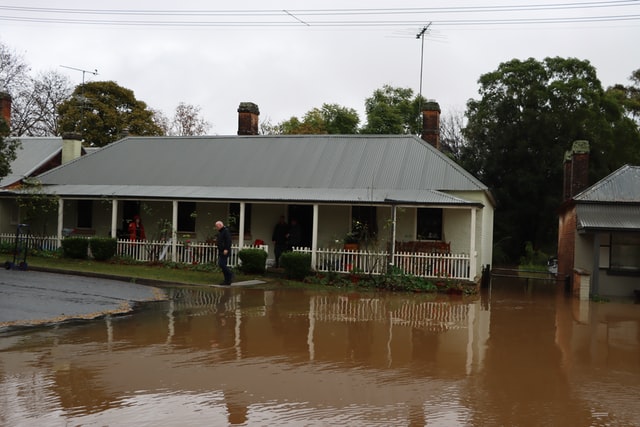Nobody wants to think about the worst-case scenario. However, the more you consider the potential risks, the better you can protect your home and your family. Eliminating hazards in your home can be a game-changer in the event of an emergency.
Hazards may not seem serious at first, such as a slippery bathroom floor or a cluttered room. However, if you need to evacuate the home rapidly, they could slow you down. Similarly, if you find yourself alone at home, you don’t want to slip on the floor and hurt yourself. With nobody around, you may be stuck, unable to move, and get help for a very long time.
But when it comes to risks at home, we tend to only think about threats that could endanger our family. But have you ever considered the hazards that could physically weaken your home structure and lead to serious costs or even serious structural damage? As a homeowner or a tenant, you must protect your home as a priority.

Water damage
First of all, it may be important to clarify what water damage actually means. Here’s a hint: it’s got nothing to do with the little puddle of water that forms on the floor when you get out of the shower. Water damage is much more serious and can permanently affect your home structure if you don’t address it quickly.
Many experts in water restoration understand the importance of acting fast, which is why they have a 24/7 service such as calling 1-800 Water Damage. Typically, experts are called in for damages caused by:
- Heavy rainfall
- Sewage disaster leaking into your home
- Flooded basements and rooms
- Sudden breaks in the plumbing system
Leaving stagnant water on your property can permeate the structures and the walls. It can lead to rotting structures and even collapse in the long term.

Fire damage
According to recent FEME statistics, over 3,000 Americans lose their lives in house fires every year. Over 350,000 homes experience a preventable fire every year, according to the National Fire Protection Association.
A house fire may not need more than 30 seconds to turn from a small flame into a major blaze. In many cases, people are left with no time to react or stop it. But what causes house fires in the first place?
House fires are frequently the result of electrical malfunction, heating equipment catching fire, or cooking. Electrical problems are responsible for over one-third of fires, while cooking accidents can cause another third. Heating equipment catching fire or malfunctioning is responsible for under 10% of house fires. Therefore, it is crucial to protect your family. You can’t leave anything to chance, which means:
- Ensure your electrical system is regularly checked and maintained
- Ensure young children do not have direct access to cooking elements (keep oil and pans out of their reach!)
- Do not use deep frying oil in a pan unless you are confident and experienced (you can find safe fryers instead)
- Do not keep old electrical devices plugged in
- Do not keep international devices (aka required an adaptor) plugged in as they may be built with a different voltage system
Ice damage
In the middle of a heatwave, thinking about ice damage may sound like a refreshing idea! However, if you live in a region that is prone to heavy snow and freezing temperatures in winter, it is important to check that your external pipes and devices are safe.
Indeed, water can freeze inside your pipes. Unfortunately, in its frozen state, water expands, which is likely to lead to a pipe burst. This could affect your entire plumbing system, leading to water and structural damage.
How can you prevent water from freezing in winter?
You can reach out to a plumbing specialist to discuss your options. Many plumbers are familiar with the issue and know how and when to act. When the temperatures go under 20 degrees Fahrenheit, it’s crucial to have preventive and protective measures. First of all, you can install pipe insulation to protect the plumbing from cold temperatures. You can also ensure that cracks and openings in areas such as the garage and basement are sealed so your pipes are not exposed to cold temperatures. Another excellent tip is to insulate your unfinished areas. The basement is one of the most commonly overlooked risks for pipe bursts in winter, as most people assume that the pipes running through it will be safe from the cold. In reality, an unfinished basement lacks insulation, which means that its temperature can drop significantly in winter!
Keeping your home safe from significant risks that could destroy it is a no-brainer. The top three devastating hazards that could claim your home, water, fire, and ice, could be prevented with the right approach.